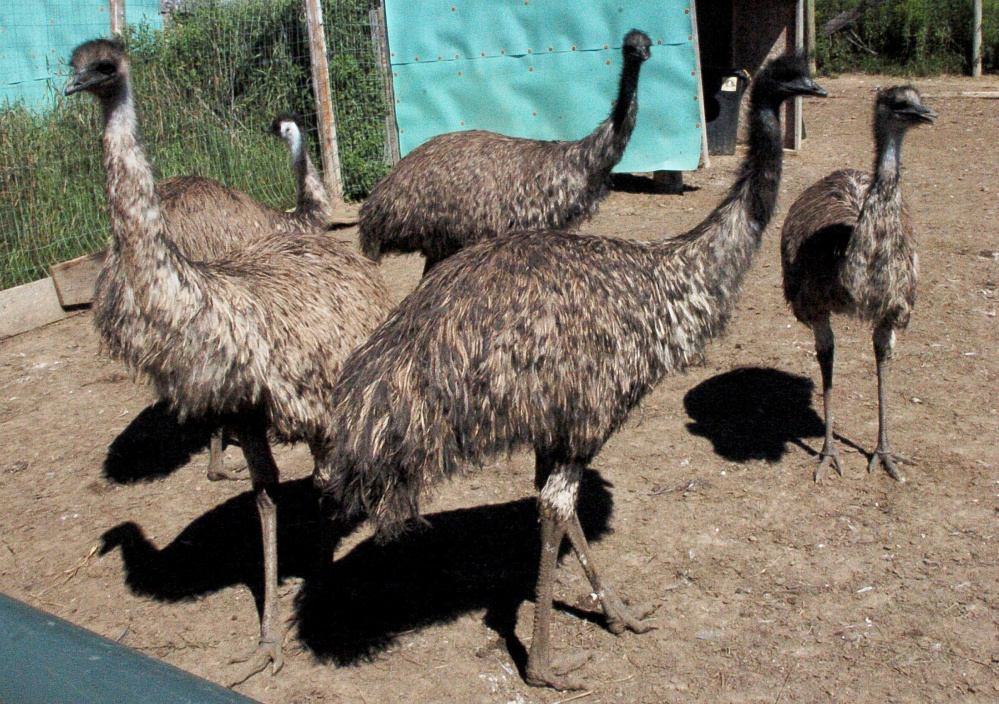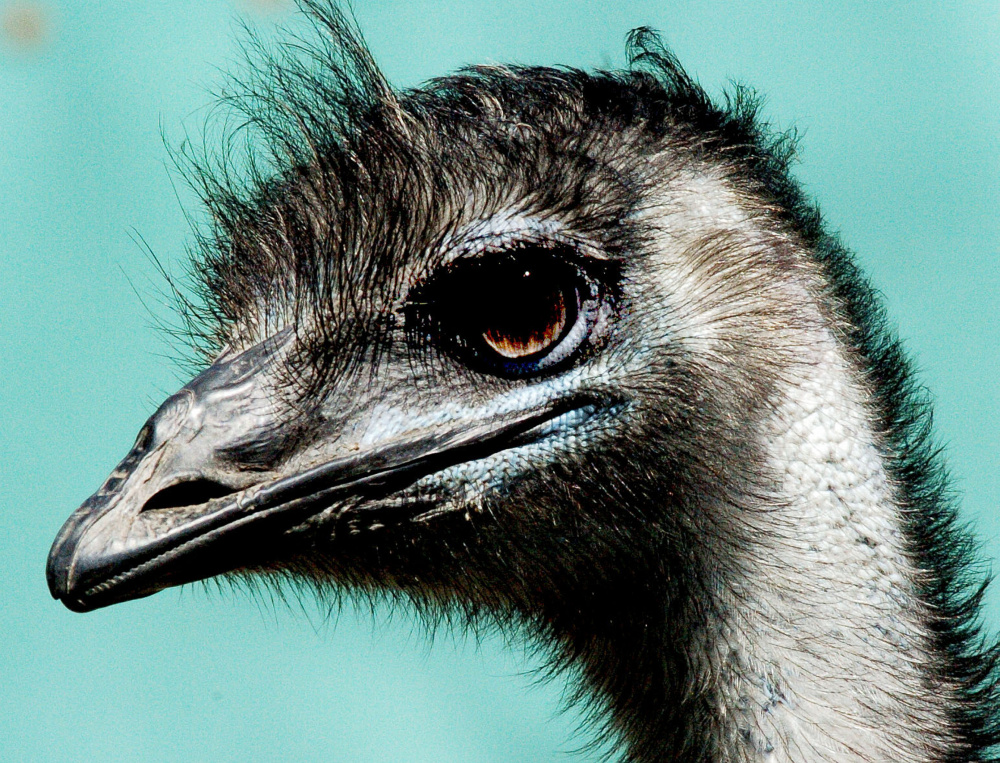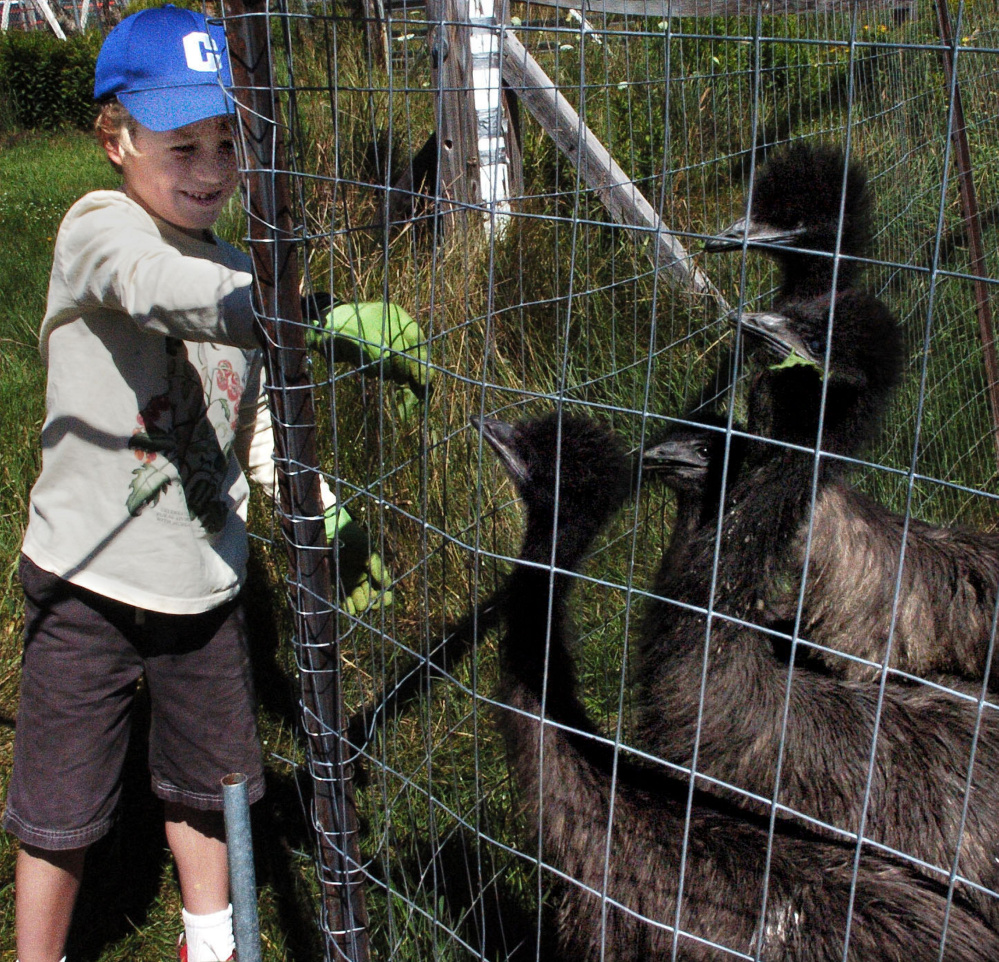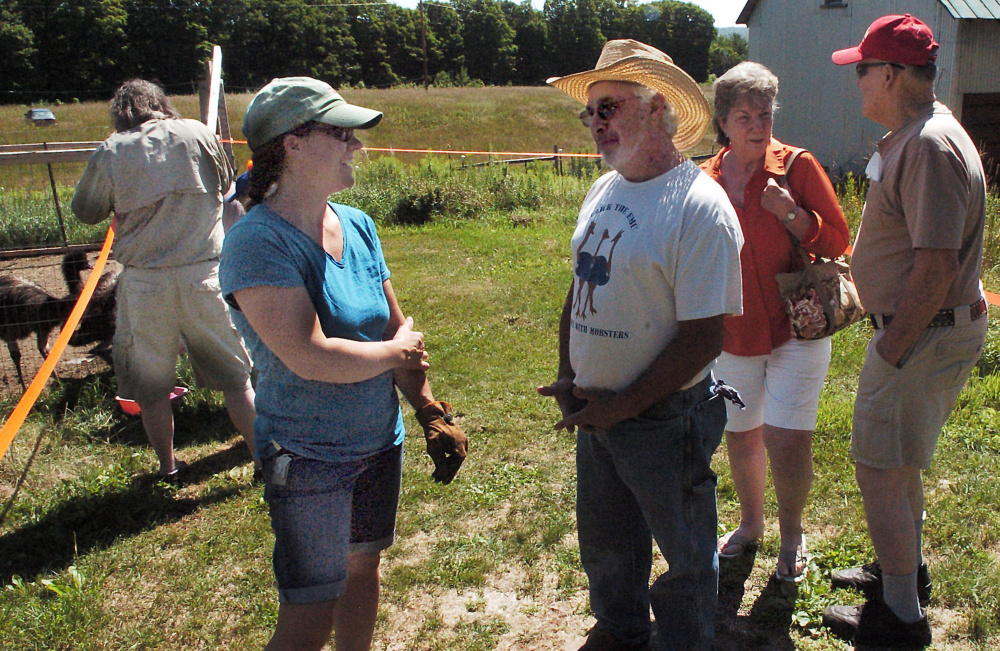FARMINGTON — Emus, an exotic bird native to Australia, are not commonly found on livestock farms in Maine. But just off Route 43 in Farmington, Richard Merrow and Rita Mathon are trying to change that with their Birds of a Feather Emu Farm.
“There are not too many emu farms, and that’s the one thing I am trying to change,” Merrow, who has been raising emus for the last six years, said. “The challenge is obviously getting the word out.”
On Sunday, as one of the participating farms in the state’s Open Farm Day, Merrow made strides in giving the public exposure to emu farming and its benefits as residents from across the central Maine area flocked to the farm on Savage Road.
Most of the people who were perusing the pens of emus, the second largest bird by height behind the ostrich, had never seen one, and those who had had only seen them in a zoo. But curiosity trumped wariness of the large flightless bird as onlookers, including 7-year-old Damian Wynn, of Chesterville, fed the birds dandelion greens through the wire fencing that enclosed the pens.
“I like them,” Wynn said, giggling while feeding three- and four-month-old emus.
Merrow and Mathon also raise typical poultry birds, such as turkeys and chickens, on their farm. But when the poultry season ends in November, Merrow, a retired subcontractor, is not content with leaving his farm unproductive through the winter.
“I was looking for something else to do in the course of the winter,” Merrow said.
So he began researching what he could raise in the winter months, ultimately stumbling upon an article about alternative birds and animals to introduce to your farming. Among the suggestions were emus. After a little over a year of research, he and Mathon decided to give emu farming a try.
At the time, they were raising poultry on an acre of rented land in Monmouth. Four years ago, with emus in tow, they moved their farming operation to Farmington and have since expanded their operation substantially.
“This is the best place we could have found for farming,” Mathon said.
At present count, there are 64 emus of varied ages on the farm, one of only three in Maine raising emus, according to Merrow, though they are raised outside of their native Australia elsewhere in the United States. Ultimately, Merrow would like Birds of a Feather Farm to be primarily an emu hatchery. They would raise the birds to lay eggs, and then once the eggs hatch, he would sell them to other emu farms that would raise them for meat, among a variety of other products they can be used for.
“Some people say, ‘Oh, it’s an exotic bird. What are you going to do with it?” Mathon said. “They can be used for many, many things.”
Emus can be raised for eggs and meat, which shares similarities to beef. But Merrow said the uses of emu expand far beyond that, including uses of their feathers, hides and their fat, which is the most profitable byproduct when it is rendered into oil and used for a variety of cosmetic and medicinal products.
Kirk and Connie Wilkins, of Embden, were among those who turned out to see just what emu farming entailed on Sunday morning, and both were impressed with the diverse farming choice Merrow and Mathon took on.
“It’s a diversity that’s needed,” Kirk Wilkins said. “If (the state is) going to do agriculture, they need to tap into new things.”
“I think it’s awesome, I really do,” Connie Wilkins said.
As soon as Birds of a Feather Emu Farm moved in across the street from her home, Cathie Burke’s interest was peaked. In the last four seasons, Burke has become a volunteer at the farm and has loved being able to watch the hatching and raising of the emus firsthand.
“I loved it, and I was very much a part of when they were hatching the eggs. Being able to hold it and watch the whole process, it’s amazing,” Burke said. “There’s an excitement to watch them chip through the shell.”
On display at the emu farm Sunday were a variety of products made with emu oil. Visitors were able to place orders for any of the products through Mathon and other volunteers. In the afternoon, Burke’s husband was grilling up emu burgers for visitors to try.
This was the first time Mathon and Merrow partook in Open Farm Day, and they said they would do it again as the response to their emu farming operation was strong.
Held annually, Open Farm Day is organized by the state Department of Agriculture, Conservation and Forestry. Over 80 participating farms in Maine were open to the public from 10 a.m. to 3 p.m. on Sunday.
Lauren Abbate — 861-9252
Twitter: @Lauren_M_Abbate
Send questions/comments to the editors.





